Scott Anderson1 Samuel 3:1-10 † Psalm 139:1-6, 13-18 † 1 Corinthians 6:12-20 † John 1:43-51 A video form of this meditation can be found here. How do we hear the voice of God? How do we recognize the voice of truth when it speaks? How do we understand what we see with our own eyes, and the truth of it? I suspect this is one of the most challenging aspects of the current moment. As we watch the crescendo of right-wing domestic terrorism, shaped and fueled as it has been by mistruths and lies, spreading into all institutions and corners of society. What hope do we have to hold out for our better angels and a future that is truer and safer and more equitable when our own perspectives are dismissed by those who seem to live in entirely different plausibility structures? And on what basis can we be sure that our perspective is fundamentally better than that of these our current president and his supporters call patriots? While I hold to my own convictions, perhaps more strongly now than ever, I know my own perspectives are sometimes incomplete and flawed. I keep thinking of a viral video I suspect most of us have seen of capitol police officer Eugene Goodman making his way up the capitol steps with dozens of rioters menacing him.[i] At first watch something seemed wrong. It appeared to me to be a half-hearted attempt to contain a mob as he retreated up the steps. I’m not sure exactly what I expected of someone with his charge, but this wasn’t it. There was more going on, something about it that just didn’t quite make sense, that wouldn’t let me go until the larger truth of that moment came out. Now we know officer Goodman wasn’t running away, he was luring the mob away from the Senate chambers where lawmakers were sheltering, and armed officers were frantically trying to secure the doors. Officer Goodman likely preempted a violent confrontation as a result of his quick thinking according to experts. Indeed, a group of lawmakers have indicated they will introduce a bill to award the officer a Congressional Gold Medal, one of the highest awards a civilian can receive. When we hear that voice calling us to act, how do we know it is God’s? How does God speak to us? The producers of the 1998 animated film The Prince of Egypt wrestled with this question. They had originally wanted to have God speak in a blend of voices to indicate that we hear God in many different ways. This would have fit nicely with the Midrash commentary that states that at Sinai each person there heard God according to his or her own ability[ii] or with the story of Pentecost in which each person hears in their own native language.” They considered more routine approaches, like the rich, deep voice of a James Earl Jones or the proper English tongue of Julie Andrews. Ultimately, they decided to have the same actor who played Moses in the film speak the voice of God, leaning on an ancient Jewish commentary that suggests we hear God in our own voice, and echoed in Freud’s notion that our superego speaks to our ego—our higher self is God speaking to us. The psalm for this Sunday, psalm 139 is fairly well captured in the hymn we chose for this Sunday. So the first verse: O God, you search me and you know me. All my thoughts lie open to your gaze. This is a comfort, of course—that the one who loves us, the Creating Spirit whom John’s gospel affirms is nothing less than Love knows us through and through, and that love does not fail even with this full knowledge. This is the very foundation of true religion and solace in moments of trial like these, in hard times and wicked domains, which the writer David Epstein in his book Range describes as those environments in which the rules of the game are often unclear or incomplete, lacking obvious or repetitive patterns and immediate and accurate feedback.[iii] Epstein contrasts these wicked domains with what the psychologist Robin Hogarth called “kind” learning environments in which patterns repeat over and over and feedback is accurate and rapid. When I think of Psalm 139, I often think of Job or Jonah or the experience of oppression for those in our history who suffered at the hands of our dominant white culture. They knew struggle and conflictedness in ways that we too can comprehend and the ways in which the ancients understood and wrestled with these challenges is instructive for us. So the psalm hymn continues, opening us to the experience of a constant, knowing presence that can be comfort, but also lived as oppressive. Job cannot escape the suffering he experiences in the grand bargain that God and the accuser make. Jonah wants nothing more than to have nothing at all to do with these despised Ninevites, but he is redirected back to them in every scene. Even Samuel must rely on a disappointing Eli whose children have done all sorts of evil, and it seems its all Eli can do to keep awake for a moment or two to provide Samuel with a modicum of mentoring. There are times that are wicked—unpredictable, unclear, and painful, and yet, we cannot escape them. We are living in one now, I believe. We are hedged in before and behind; we are under siege with no escape when all that we would like to do is to turn it off and go back to our so-called normal lives. The hymn takes Psalm 139 in a more positive direction: “with love everlasting you besiege me:” it sings. But the faithful translation of the word besiege betrays that experience of being trapped even as it tries to place it within the context of a loving God. So the psalmist ends with what surely will sound to us in hard times as a complaint—and it may well be—when all we want to do is get away from the untenable, draining and difficult places we find ourselves, but there is nowhere to escape.
How do we remain faithful when on one hand we know we need to remain connected, but on the other, we can’t just let everything pass, let everything go for the sake of a so-called peace which is nothing more than a momentary lack of conflict? And at the very same time, we know, if we are courageous enough to look in the mirror, that we are far from blameless. There is nowhere to escape. There is only the work to do. This is the sixth time I have preached to you these texts at St. Andrew. This time around I find myself in Nathanael. I see him as tired and a little bitter. The word of the Lord is rare. He has pretty much given up on anything from Nazareth and given in to his dismal assumptions. We might do well to wonder about Nathanael’s conversion—and our own in these wicked times. How do we learn? What may we have to let go of to grab onto what we truly want? How do we hear the voice of God when it is everywhere and nowhere and mostly sounds like our own voices? One last story. Let’s call it a parable for these wicked days. David Epstein relays it later in his book Range.[iv] In 1994, on Colorado’s Storm King Mountain, a fire jumped a canyon and erupted through a stand of oak below a group of firefighters. It sounded “like a jet during take off,” said one survivor. Fourteen hotshot firefighters lost the race with a wall of flame. One victim was still wearing his backpack, according the post-accident report. Another still had a chainsaw in hand. He was only 250 feet from safety. Survivor Quentin Rhoades had already run nine hundred feet uphill before he realized he still had his saw over his shoulder. “I irrationally started looking for a place to put it down where it wouldn’t get burned,” he said. “I remember thinking I can’t believe I’m putting down my saw.” Epstein writes that “Two separate analyses conducted for the U.S. Forest Service and the Bureau of Land Management concluded that the crew would have made it out intact had they simply dropped their tools and run from the start.” There is a danger in overlearned behavior. Rather than adapting to unfamiliar situations experienced groups become rigid under pressure. We regress to what we know best. Dropping familiar tools is hard when we’ve responded to the same challenges over and over in the same way. I think the heroic capitol police officer demonstrates a more creative way. And I suspect it is also present here in these texts in the Spirit of God and in Jesus who are inclined to try something new to bring us back home. Amen. Notes: [i] See, for example, the Washington Post video examination of his actions by Rebecca Tan, “A Black officer faced down a mostly White mob at the Capitol. Meet Eugene Goodman.” January 14, 2021. Retrieved on January 15, 2021 from: https://www.washingtonpost.com/local/public-safety/goodman-capitol-police-video/2021/01/13/08ab3eb6-546b-11eb-a931-5b162d0d033d_story.html. [ii] Exodus Rabbah 5:9; 29:1. [iii] Epstein, David J. Range (p. 21). Penguin Publishing Group. Kindle Edition. [iv] Epstein, David J. Range (p. 246). Penguin Publishing Group. Kindle Edition.
0 Comments
Leave a Reply. |
St. Andrew SermonsCategories
All
|
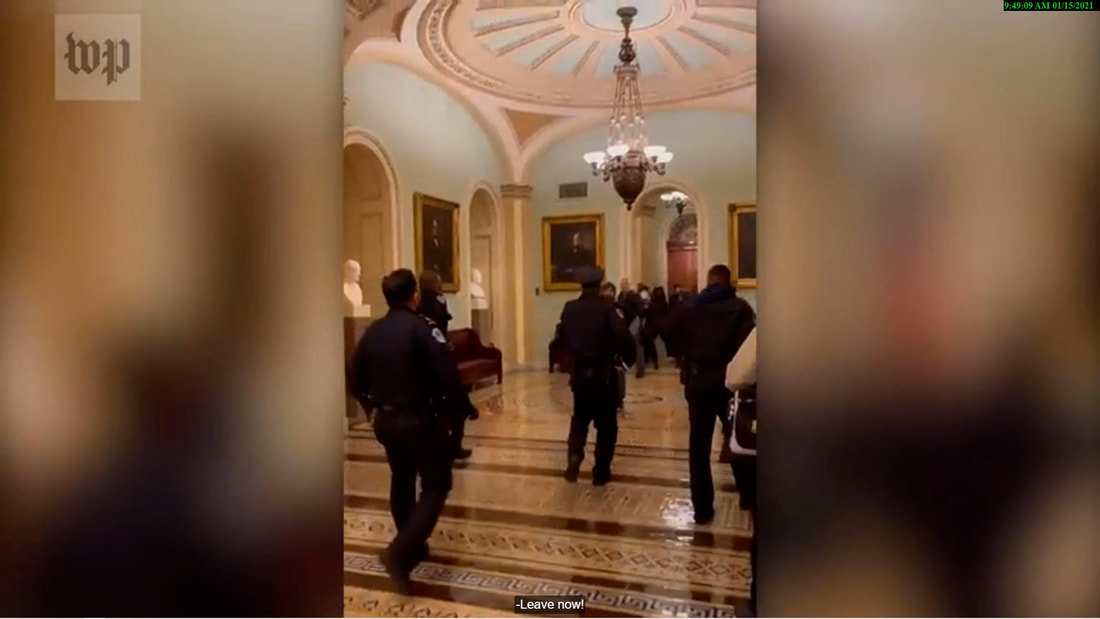
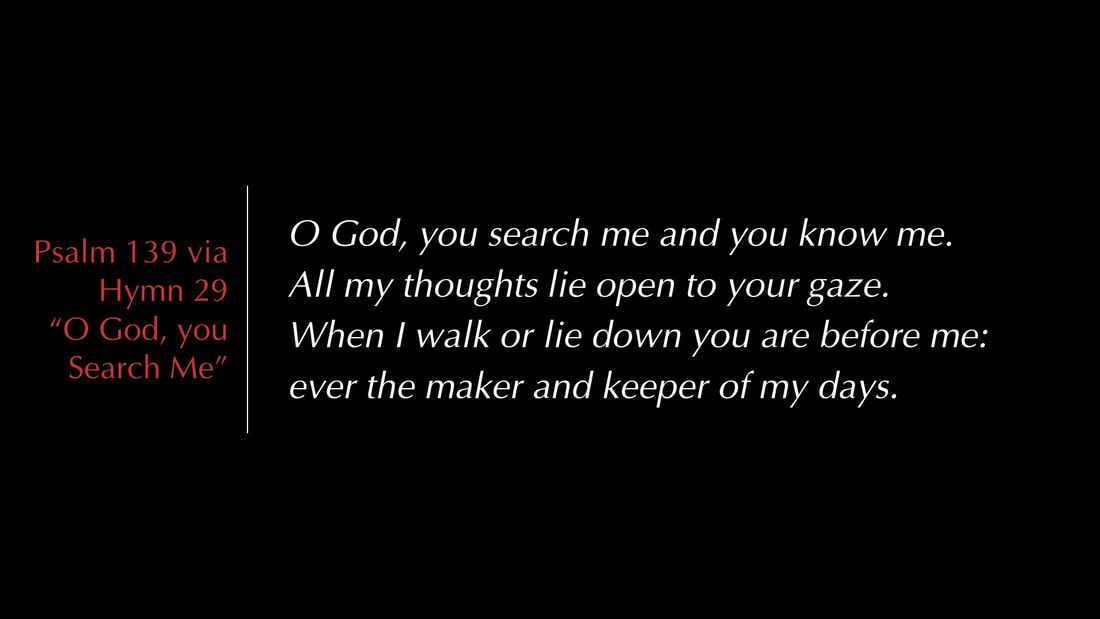
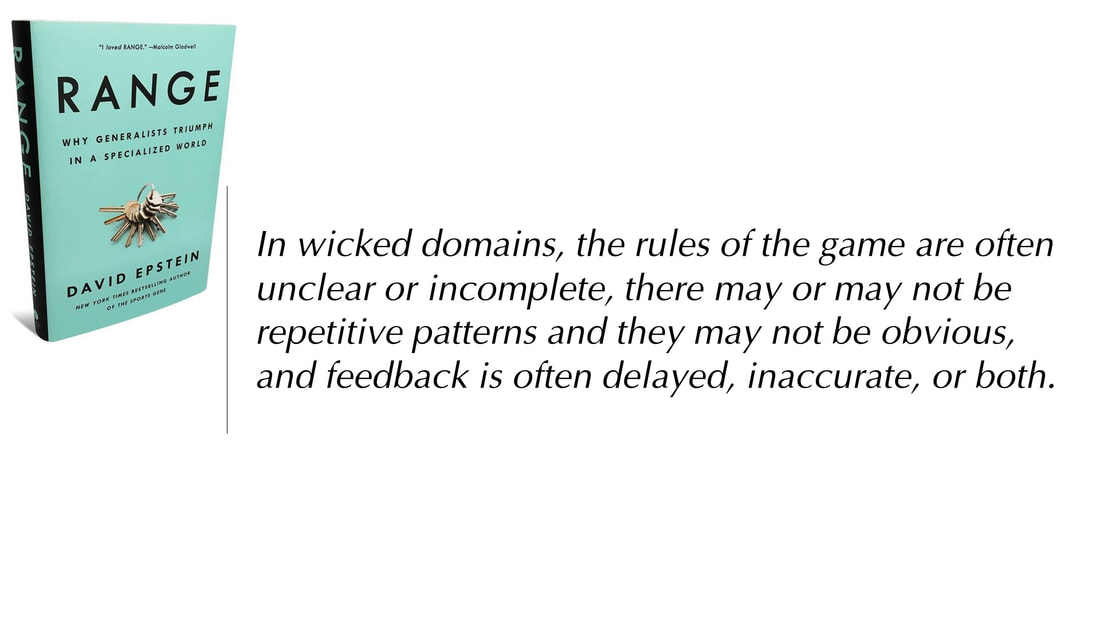
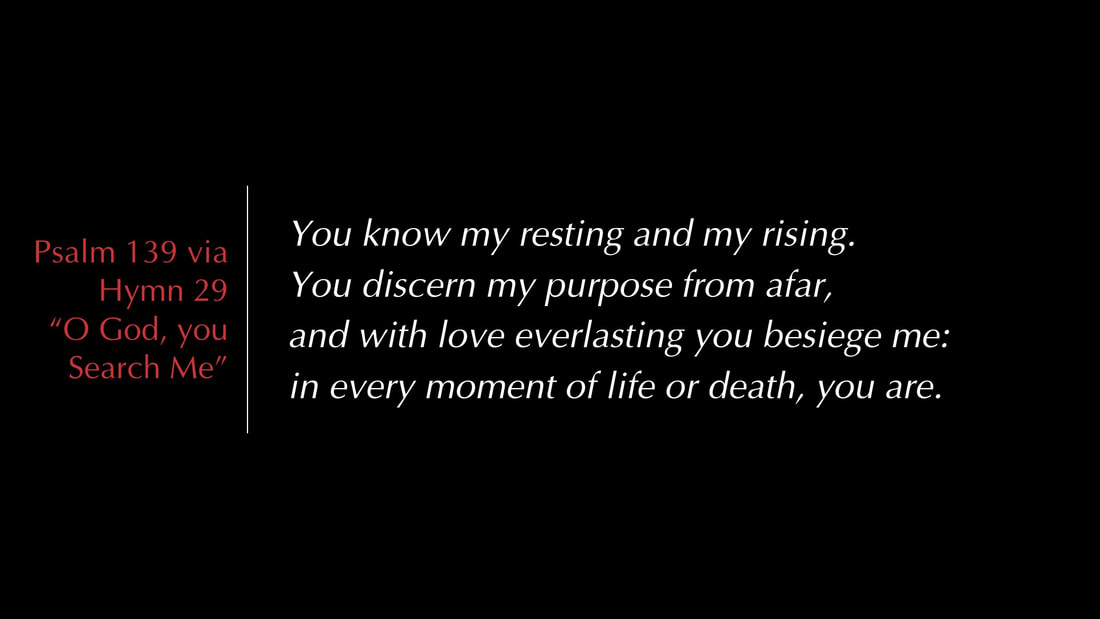
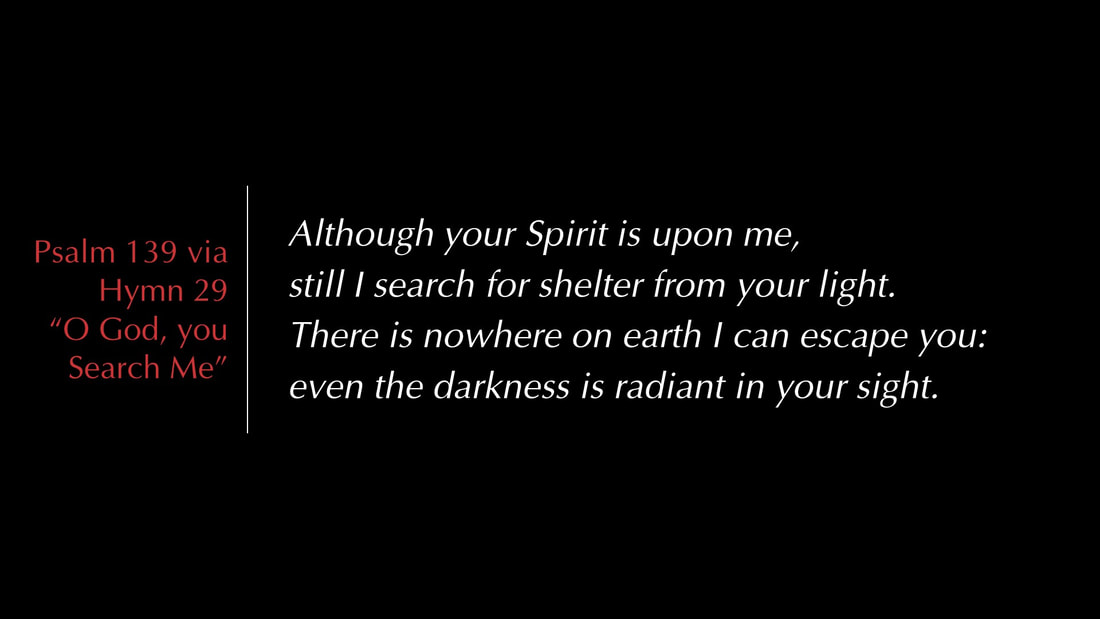
 RSS Feed
RSS Feed